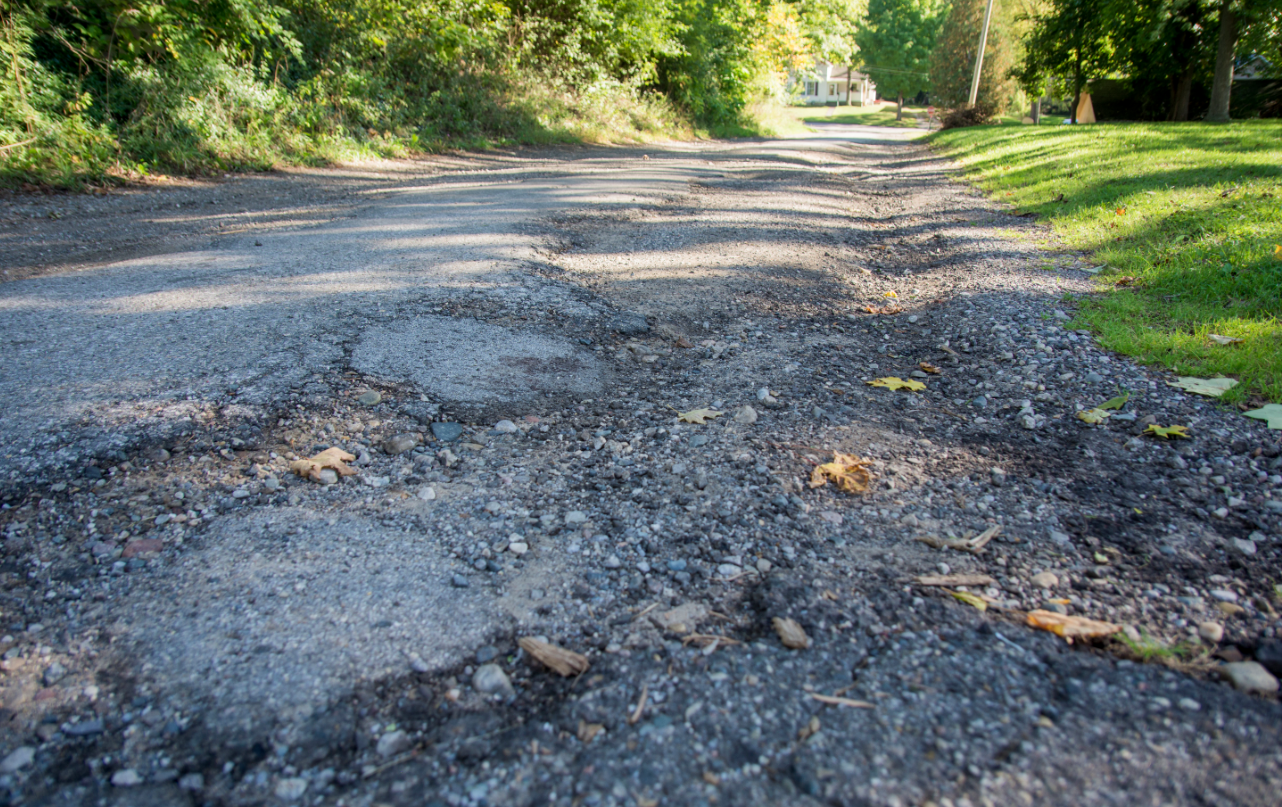Gubernatorial candidate Gretchen Whitmer vowed to “fix the damn roads” during her 2018 campaign, and she promised to do so without raising taxes, calling a 20 cent gas tax increase “ridiculous” and “nonsense.”
Five months later, Gov. Gretchen Whitmer proposed a 45 cents-per-gallon increase to the Michigan gas tax in the latest attempt to repair the state’s crumbling roads. This increase would place Michigan’s gas tax at 71.3 cents-per-gallon — the highest in the U.S. (a number that doesn’t even include the 18.4 cent-per-gallon federal gas tax) and is estimated to raise $2 billion annually for Michigan roads.
The Michigan legislature should reject this hike in favor of better policy solutions.
Whitmer’s latest proposal would increase the state gas tax 15 cents-per-gallon every six months until the 45 cent mark is reached. To offset this increase, Whitmer proposed doubling the earned income tax credit, but most voters aren’t convinced. This tax increase is more than just unpopular with constituents: It fails to address the real problems associated with Michigan roadways.
While having four seasons is typically considered a luxury, the accompanying freeze-thaw cycle combined with local soil conditions is disastrous for Michigan roads. They take an additional pounding year round from trucks that weigh as much as 164,000 pounds, the highest limit in the nation according to the Detroit Free Press.
Most residents understand the decay of the roads, but University of Michigan economist Chris Douglas suggests the problem is not as bad as it seems. In a recent report published by the Mackinac Policy Center, Douglas stated that 75 percent of trunkline roads —those that begin with I, US, or M — are in either good or fair condition. These roads carry an estimated 53 percent of Michigan’s passenger traffic and 75 percent of truck traffic. The real problem, he suggests, lies in county and local roads, in which 34 and 46 percent are in poor condition respectively.
As Douglas explains in his report, public roads present a public goods problem due to their non-excludable nature. In other words, you can’t stop non-paying people from using the roads. Douglas suggests that those who use the roads the most should pay the most.
But wait a minute! Isn’t that exactly what Whitmer’s gas tax increase would do? It’s true: under a system of high gas taxes, those who drive the most pay the most. In Michigan, however, trucks inflict far more damage to roads than the average passenger vehicle and thus, an increase in the gas tax would place burden on the wrong group. According to the Michigan Department of Transportation, the average passenger vehicle currently does less than 1 cent of damage per mile driven, while paying 3 cents per mile driven in gas taxes and registration fees. The average truck, however, does anywhere from 20 to 60 cents of damage per mile driven while only paying 11 cents-per-mile in fuel taxes and registration fees.
In his report, Douglas proposes a list of policy changes. While not all of them are excellent, they are much preferable to Whitmer’s plan. Three of these policies, in particular, would be much more effective at raising revenue and internalizing the costs of public roads than Whitmer’s proposed gas tax.
Douglas’s first proposal is to use the sales taxes from fuel purchases to fund road construction. Currently, 72.8 percent of the revenue from Michigan’s 6 percent sales tax goes towards public education, according to the State of Michigan House Fiscal Agency. While such a proposal would redirect some funds away from education, public school districts have many other sources of funding that can be utilized. This policy is admittedly much easier said than done. Diverting funding from education is never politically popular, but large problems require sacrificial solutions.
The second of Douglas’s proposals that state legislature should adopt the expansion of the weight classes for vehicle registration, particularly for trucks, and the lowering of the maximum weight allowed on Michigan roadways. The Michigan Department of Transportation (MDOT) justifies their current standard by saying a double tractor semi-truck does less road damage than two single tractor semi-trucks. Lowering the max weight would add an estimated 15,000 trucks to Michigan roadways according to MDOT. While there would surely be a tradeoff in terms of increased shipping costs, traffic, and road damage, the increase in revenue from 15,000 more vehicle registrations a year, as well increase in revenue from fuel taxes, would more than justify the policy change. This method of raising revenue is more economically efficient as it targets the trucks that do the most damage to Michigan roads rather than the already heavily-burdened passenger car driver.
Finally, Michigan should follow the lead of Oregon and pilot a Vehicle Miles Driven Program which is estimated to add $340 million in revenue over the next ten years according to the Oregon Department of Transportation. Such a program would use either GPS or odometer tracking to charge passenger vehicles and trucks alike for their use of Michigan roads.
All three of these policy proposals are superior to Whitmer’s proposed gas tax increase. These proposals would successfully internalize many of the costs associated with maintaining public roads without overburdening the average driver that does little damage. Like any policy, these changes would involve trade-offs especially in the form of higher shipping costs that would be transferred, in part, to consumer goods. While this is not ideal, it is a superior alternative to the current state of affairs or the solution proposed by the governor’s office.
Michigan roads will always be costly to maintain, but as the auto capital of the world, we must pursue creative solutions to keep the state moving forward.

